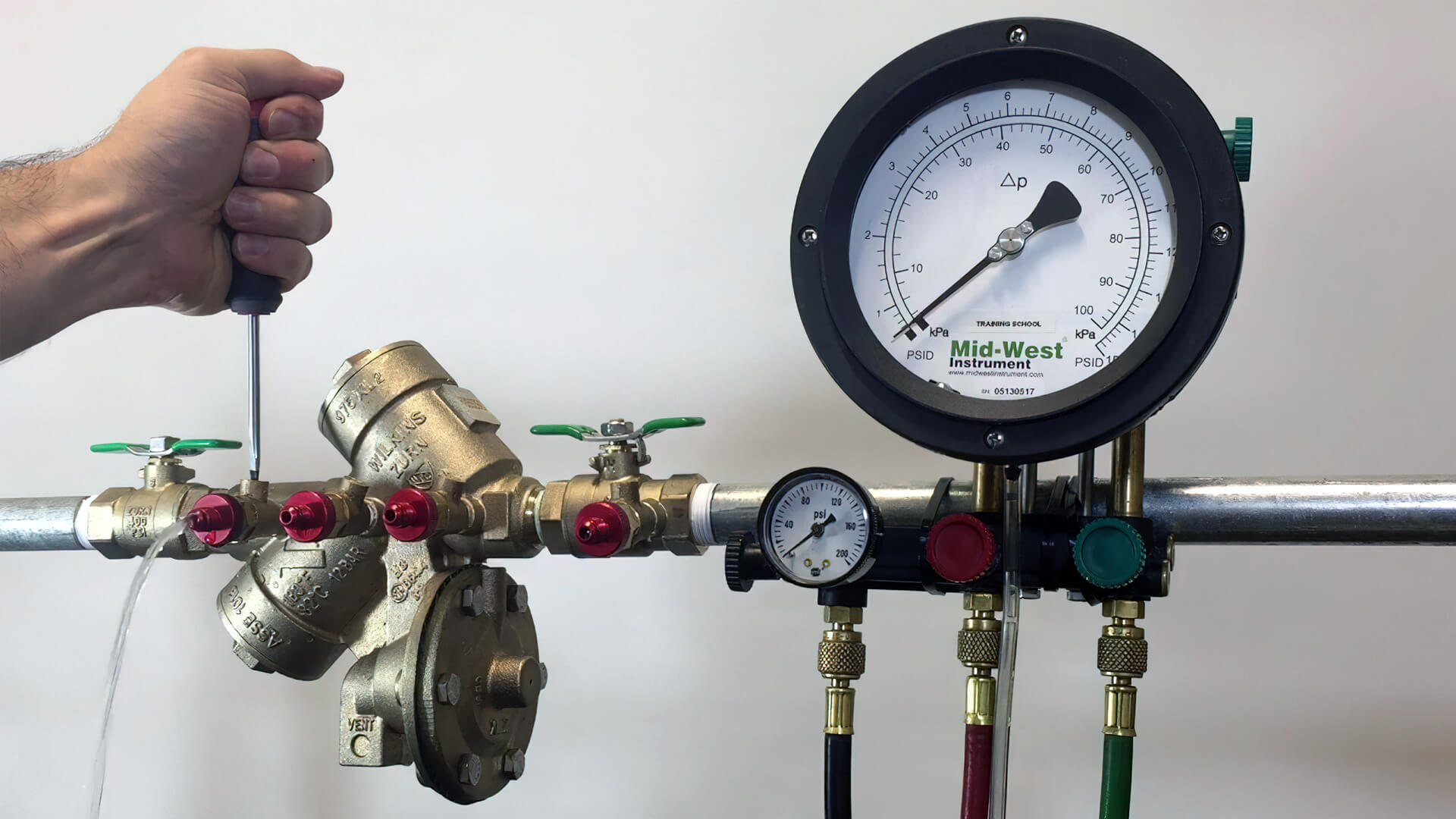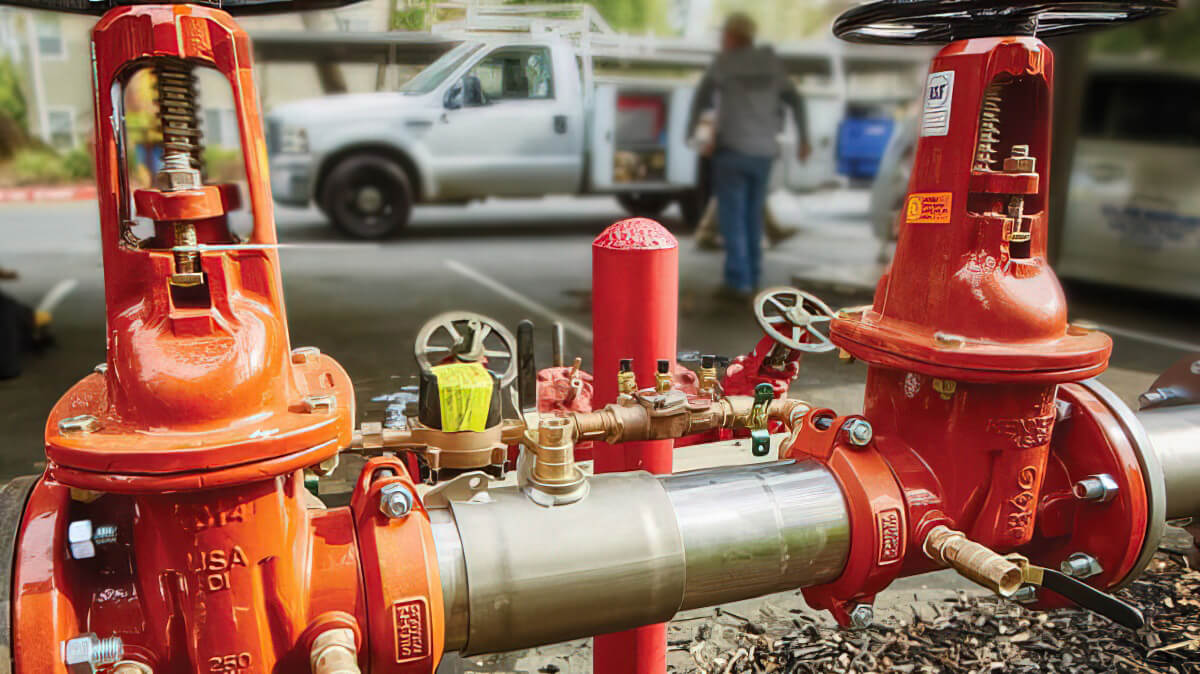Owning a commercial property means regular upkeep is crucial to maintain and even boost its value.
Plumbing, in particular, demands attention since even tiny leaks or clogs can escalate into major issues if ignored. Fortunately, there are preventative steps you can take to avoid these problems.
Today, we’ll give you a quick rundown on one critical preventive measure: backflow testing.

Backflow Testing For Commercial Properties
What Is Backflow After All?
As the term may have already suggested, backflow refers to the flowing back of used or dirty water into the clean water supply of a public water distribution system or drinking water system. Hence, commercial properties and buildings start receiving contaminated water flow in their main water lines.
It generally occurs where potable water supply and non-potable water pipes meet (cross-sections or cross-connection).
Since the back-flowing water may contain anything from chemicals to pesticides and even human waste, contaminating the clean water supply can pose a severe health hazard. Although there are several tools and plumbing techniques to keep backflow from potable water pipes, backflow occurs due to the following two reasons (besides faulty plumbing):
Backsiphonage
Back siphonage is caused by a sudden drop of water pressure in a particular section of the pipes, which pulls up contaminated water. This can result from a broken main water line, failure in the water pump, or water loss from the firewater sprinkler system.
Backpressure
Backflow can also result from reverse or increased pressure from non-potable water sources like coolers, boilers, heaters, waste disposal systems, etc.

Why Is Backflow Testing Necessary?
Backflow testing helps commercial property owners detect the causes (both present and potential) of backflow and nip them in the bud. Even if you have a backflow prevention system or have installed backflow prevention devices, it’s crucial to get it checked regularly and fix issues like malfunctions or leaks before they wreak havoc on your property.
Regular backflow testing by a licensed plumber is a legal regulation, and failure to comply may result in hefty fines. On that note, here are a few reasons why you shouldn’t delay commercial backflow testing:
1. Backflow Can’t Be Visually Detected
Often, contaminated water doesn’t look any different, especially if it’s tainted with microscopic organisms, chemicals, or tiny debris. Noticing a bad smell or taste could take weeks or even months.
Hence, people may continue consuming the contaminated water for prolonged periods, leading to severe health conditions.
For example, potable water sources contaminated with bacteria like Legionella, Shigella, Salmonella, E.Coli, and similar harmful organic compounds can cause a burning sensation in the mouth. Besides, you may experience nausea, diarrhoea, fever, poisoning, fatigue, gas, bloating or similar gastrointestinal diseases.
Long-term consumption can cause life-threatening conditions like liver failure, kidney damage and even cancer.
2. Backflow Can Threaten The Community Health And Water System
It may not be long before the contaminated water problem escapes your commercial property and extends to the entire public water distribution system. This can cause widespread illness in the community and irreversible structural damage to the physical supply system.
Even if the system can be repaired, it will likely cost a lot, depending on the size of the area it covers.
When Is The Right Time To Get Your Backflow Prevention System Checked?
Generally speaking, make sure to have your backflow prevention system and devices checked annually. This regular maintenance is crucial for keeping your plumbing and water supply systems in top shape to safeguard your drinking water.
Having these checks ensures water flows properly and stays uncontaminated. It’s wise to consult a professional to determine the best schedule based on your property’s water usage.
Aside from that, you should call for professionals when you observe any signs of the system or your backflow preventer device malfunctioning. For instance, you may spot leaks or muddy discharge caused by corrosion, debris accumulation, internal negative pressure, thermal expansion, etc. Another thing to watch out for is water contamination and the discharge of dirty or discoloured water from faucets and water fixtures (both potable and non-potable). Avoid using the water and contact a professional immediately; the contaminated water may also harm the skin.
Why Should You Go With Professional Plumbers?
When it comes to troubleshooting issues with your backflow prevention system, professional and licensed plumbers are your go-to experts. They can pinpoint the root causes and have the right tools and solutions for any necessary repairs or installations.
Plus, they follow all the necessary plumbing guidelines or regulations in your area and get the job done with minimum disruptions to regular activities in commercial buildings.

Protect Your Commercial Property from Backflow
There’s never a better time to check your backflow system or install a backflow prevention device, so contact the best plumbing service in your vicinity today.
And here’s a pro tip: choose a plumbing service that offers regular maintenance packages and attends emergency calls. Additionally, ensure that the plumbers clean the water distribution system in your property to prevent backflows.
Here at Fixed Today, our backflow services include backflow testing and backflow prevention containment device installation. For a crucial plumbing problem like a backflow, contact our licensed plumbers at Fixed Today to ensure your drinking water system is safe for you and your family.
See you again!














